Today marks the final day of Fuqua’s Global Week, with events showcasing the global economy and international business. Learning opportunities for students and faculty have included speakers William D. Eggers, the Global Director for Deloitte Research, and Ido Aharoni, Consul General of Israel. The week also included lighter fare, such as opportunities to sample cuisines from around the world. For those who have not had a chance to participate, there is still time to attend the Friday evening programs, which include the Global Week fashion show, the talent program and the Global Party. In celebration of Fuqua’s international students and in appreciation of the global marketplace, three reviews showcase important new books about Asia in our changing world.
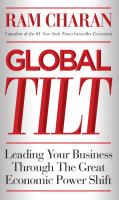 Charan, Ram et al. Global tilt : leading your business through the great economic power shift. Crown Business, 2013. Drawing a line at the earth’s 31st parallel, strategy adviser Ram Charan argues that wealth and opportunities are moving from North to South. Companies in Europe and North America are experiencing low growth but entrepreneurial firms in India, Brazil and China are seeing revenue growth in double digits. In Global Tilt, Charan writes that the shift in business opportunities and economic power is inevitable. The forces driving the change include the global financial system, changing demographics, digitization and communication. He offers practical advice on how to succeed in this environment, including developing the mind-set and skills that leaders need to manage in the new environment. He advises business leaders to stop concentrating on core competencies and to begin looking at business from the “outside in,” sensing forces in the environment that could interact and combine to create opportunities. He also introduces the concept of “future back,” imagining the competitive landscape 20 years out and then considering the implications for the present. CEO’s who position their companies to capitalize on the new power in the South will succeed in this complex, highly competitive world. Clearly written, this insightful book is recommended for anyone interested in business strategy, global business operations or societal trends. Also available in audiobook format.
Charan, Ram et al. Global tilt : leading your business through the great economic power shift. Crown Business, 2013. Drawing a line at the earth’s 31st parallel, strategy adviser Ram Charan argues that wealth and opportunities are moving from North to South. Companies in Europe and North America are experiencing low growth but entrepreneurial firms in India, Brazil and China are seeing revenue growth in double digits. In Global Tilt, Charan writes that the shift in business opportunities and economic power is inevitable. The forces driving the change include the global financial system, changing demographics, digitization and communication. He offers practical advice on how to succeed in this environment, including developing the mind-set and skills that leaders need to manage in the new environment. He advises business leaders to stop concentrating on core competencies and to begin looking at business from the “outside in,” sensing forces in the environment that could interact and combine to create opportunities. He also introduces the concept of “future back,” imagining the competitive landscape 20 years out and then considering the implications for the present. CEO’s who position their companies to capitalize on the new power in the South will succeed in this complex, highly competitive world. Clearly written, this insightful book is recommended for anyone interested in business strategy, global business operations or societal trends. Also available in audiobook format.
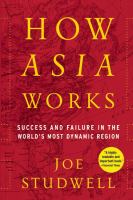 Studwell, Joe. How Asia Works. Grove Press, 2013. In How Asia Works, freelance journalist Joe Studwell analyzes the research on nine Asian economies and concludes that there are two Asias – one is the “Asian economic miracle,” economies with sustained growth over many decades. The other Asia is marked by a period of fast growth followed by stagnation. Studwell argues that successful countries (Japan, South Korea, Taiwan and, most recently, China) consistently employ a key set of government policies. When developing their economies, successful countries first restructure agriculture by redistributing land into small family farms. In poor countries, most people live on farms, and intensive farming makes efficient use of available labor. Household farming also delivers larger outputs per acre and the productive surplus primes demand for other goods and services. After the returns from land reform tapers off, successful economies promote manufacturing and trade, subsidizing companies that export. And lastly, successful governments take steps to focus capital on small-scale agriculture and on manufacturing. Asian nations that follow these policies are successful and those that do not (Thailand, Malaysia, Indonesia) have languished. This insightful and very readable book includes many examples from Asian countries and companies. Also available as a Kindle eBook.
Studwell, Joe. How Asia Works. Grove Press, 2013. In How Asia Works, freelance journalist Joe Studwell analyzes the research on nine Asian economies and concludes that there are two Asias – one is the “Asian economic miracle,” economies with sustained growth over many decades. The other Asia is marked by a period of fast growth followed by stagnation. Studwell argues that successful countries (Japan, South Korea, Taiwan and, most recently, China) consistently employ a key set of government policies. When developing their economies, successful countries first restructure agriculture by redistributing land into small family farms. In poor countries, most people live on farms, and intensive farming makes efficient use of available labor. Household farming also delivers larger outputs per acre and the productive surplus primes demand for other goods and services. After the returns from land reform tapers off, successful economies promote manufacturing and trade, subsidizing companies that export. And lastly, successful governments take steps to focus capital on small-scale agriculture and on manufacturing. Asian nations that follow these policies are successful and those that do not (Thailand, Malaysia, Indonesia) have languished. This insightful and very readable book includes many examples from Asian countries and companies. Also available as a Kindle eBook.
 Osburg, John. Anxious wealth : money and morality among China’s new rich. Stanford University Press, 2013. Newly rich managers and entrepreneurs are trendsetters in fashion, preferred marriage partners and prominent patrons of China’s urban restaurants, nightclubs and department stores. Privileged Chinese men meet and make deals in male-oriented entertainment sites for businessmen, including restaurants, saunas, foot massage parlors and karaoke clubs. Cultivating and maintaining relationships with clients and important people plays a key role in generating business and improving social status. In Anxious Wealth, a Chinese speaking American professor socializes in Chengdu, China with a network of businessmen, playing cards in tea- or coffeehouses in the afternoons; and attending banquets or going out to karaoke clubs in the evenings. Author John Osburg shows how these elite male networks of “old boys’ clubs” are formed and how they operate. He also shows how the entertainment often involves young women as hostesses or mistresses, “gray women” who are between the white world of marriage and the black world of the sex trade. He discusses the beauty economy, the marketplace where sexualized young women promote commercial products and services. Osburg is an anthropologist and his book is serious academic work. While a sensationalized narrative would be easier to read, this slim volume is recommended for anyone doing business in China.
Osburg, John. Anxious wealth : money and morality among China’s new rich. Stanford University Press, 2013. Newly rich managers and entrepreneurs are trendsetters in fashion, preferred marriage partners and prominent patrons of China’s urban restaurants, nightclubs and department stores. Privileged Chinese men meet and make deals in male-oriented entertainment sites for businessmen, including restaurants, saunas, foot massage parlors and karaoke clubs. Cultivating and maintaining relationships with clients and important people plays a key role in generating business and improving social status. In Anxious Wealth, a Chinese speaking American professor socializes in Chengdu, China with a network of businessmen, playing cards in tea- or coffeehouses in the afternoons; and attending banquets or going out to karaoke clubs in the evenings. Author John Osburg shows how these elite male networks of “old boys’ clubs” are formed and how they operate. He also shows how the entertainment often involves young women as hostesses or mistresses, “gray women” who are between the white world of marriage and the black world of the sex trade. He discusses the beauty economy, the marketplace where sexualized young women promote commercial products and services. Osburg is an anthropologist and his book is serious academic work. While a sensationalized narrative would be easier to read, this slim volume is recommended for anyone doing business in China.
© Reviewer: Meg Trauner & Ford Library – Fuqua School of Business.
All rights reserved.
 Ford Library’s Thanksgiving Week hours begin on Tuesday, November 26 and continue through Saturday, November 30.
Ford Library’s Thanksgiving Week hours begin on Tuesday, November 26 and continue through Saturday, November 30. Thanksgiving break is a great time to catch up on your leisure reading. As you head out for the weekend, stop by the Ford Library circulation desk with your Duke ID and take home a Business Bestsellers Kindle. Each Business Bestsellers Kindle is preloaded with dozens of popular business titles, a few of which are highlighted below. Enjoy some light reading on your travels, and have a happy Thanksgiving!
Thanksgiving break is a great time to catch up on your leisure reading. As you head out for the weekend, stop by the Ford Library circulation desk with your Duke ID and take home a Business Bestsellers Kindle. Each Business Bestsellers Kindle is preloaded with dozens of popular business titles, a few of which are highlighted below. Enjoy some light reading on your travels, and have a happy Thanksgiving!
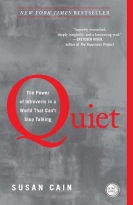

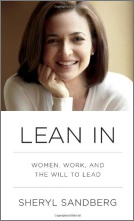
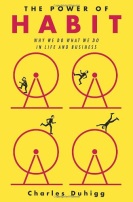



 Charan, Ram et al.
Charan, Ram et al.  Studwell, Joe.
Studwell, Joe.  Osburg, John.
Osburg, John. 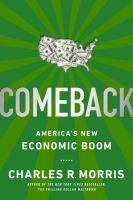
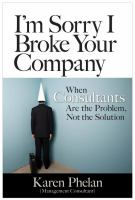

 Mayer-Schönberger, Viktor and Kenneth Cukier.
Mayer-Schönberger, Viktor and Kenneth Cukier.